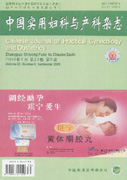Among all of gestational diabetes 5%-10% was preexisting diabetes.The consultation during prepregnancy and antenatal care in women with preexisting diabetes include the investigation of blood glucose levels,chronic complications,to determine the right time for pregnancy.The existing data shows that relatively safe oral hypoglycemic agents are glyburide and metformin in pregnancy.It is still recommended to use insulin to control blood glucose in pregnancy.

